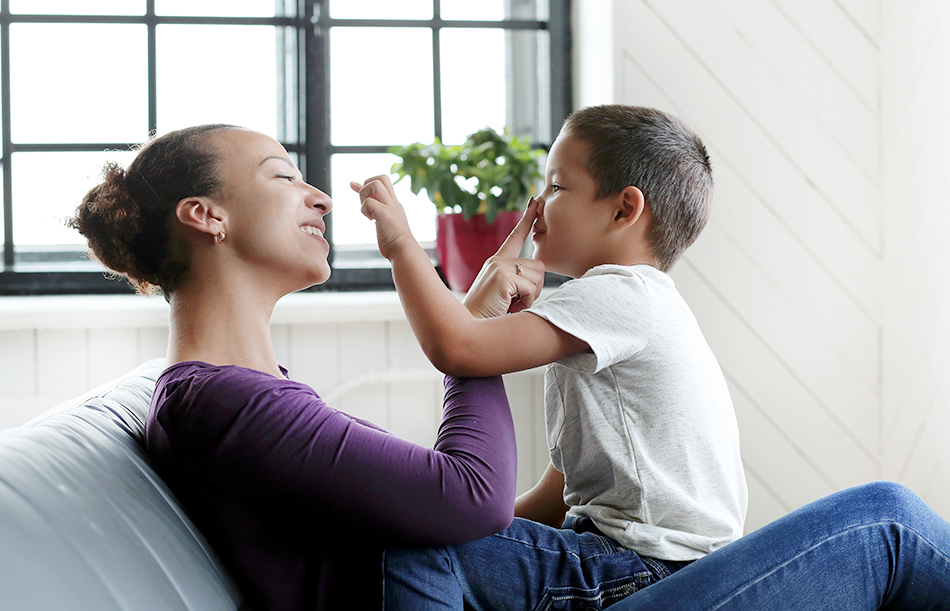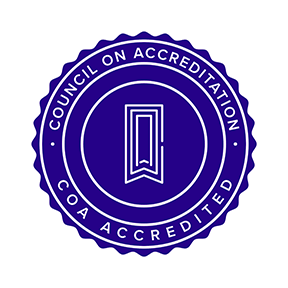How Resource Parents Can Nurture Trauma-Affected Children
8th of February 2017

Children in foster care, who have suffered trauma, require safe, nurturing relationships with resource parents so they can begin to heal. A trauma is any experience that is deeply distressing or disturbing. Traumatic events can take many forms, and the way children and youth experience it can vary as well. With the help of caring and patient resource parents, children who have been traumatized can begin to cope, heal and thrive.
Children in foster care have suffered some form of abuse or neglect. It is important to gather as much history and information about the child from the placing agency or birth parent as possible. Understanding where the child comes from will help in making parenting decisions. Trying to imagine what the child has gone through and how they may have felt, will allow you to understand why they respond the way they do. Any experience, good or bad, will have an impact on a child’s behavior and how they will adjust to their new resource family. Each child is different and will have their own reaction to abuse and neglect, even if they are part of the same family. Understanding this and not taking behavior personally will make parenting a little easier.
Identifying Signs of Abuse and Neglect
At times it is difficult to obtain background information about the child, so it’s important as a resource parent to learn to identify signs of abuse and neglect. Below are a few signs of which to be aware. The list is not comprehensive and not all children that have these signs have been abused.
 Physical Abuse
Physical Abuse
-Unexplained bruises, welts or swelling
-Broken bones, burns or bites
-A child cowers when approached by an adult
-Frequent physical complaints, such as stomach aches or headaches
Neglect
-Lacks needed medical or dental care
-Appears underweight
-Eats rapidly or hoards food
Sexual Abuse
-Nightmares or bedwetting
-Knowledge or interest in sexual behaviors that are not age appropriate
-Attaches very quickly to strangers
Emotional Abuse
-Fearful of parent or says they hate their parent
-Talks badly about themselves (“I’m worthless”)
-Shows either inappropriately mature behavior (parenting other children) or inappropriately childish behavior (rocking or head banging)
Learning How to Cope
For resource parents, it’s important to keep the social worker aware of behaviors and signs the child is exhibiting. This will help both the resource parent and social worker develop a treatment plan to better serve the needs of the child and help them start the healing process.
Teaching children how to cope with their past abuse will begin to build their resilience and allow them to flourish. The following are some things you can do to help your child’s ability to cope.
Start to Bond
Teach your child that you and your family will be there for them, no matter the situation. Talk to them about building trusting and respectful relationships. Do things as a family. Ask them about their likes and dislikes and incorporate things like favorite foods to your new family’s routine.
Allow Children to Express Their Feelings
Teach your children how to identify their feelings and praise them for expressing them. Show them that it’s okay to express being hurt, angry or sad, without having to act out. Encourage your children to talk about their biological families as well. It will put them at ease and not feel as if they have to choose between the two of you.
Be Consistent
If you say you are going to do something, do it. Show them that they can count on you. Treat everyone in the family the same. This will help to build trust.
Be Patient
Each child is different and will react differently to trauma. Don’t rush a child, they may not be ready to talk about their past. Also, be patient when children act out—it’s not about you, it’s about their trauma.
Be Supportive
Express love, caring and support to your children both verbally and physically. Give them praise, high-fives, hugs or little notes. Let them know that you are there for them.
Behavior
 The healing process takes time and is different for every child. Children in foster care need someone to help them understand the difference between acceptable and unacceptable behavior. We must teach them that behaviors have consequences and to take responsibility for their actions. Some techniques that will assist this process include:
The healing process takes time and is different for every child. Children in foster care need someone to help them understand the difference between acceptable and unacceptable behavior. We must teach them that behaviors have consequences and to take responsibility for their actions. Some techniques that will assist this process include:
Role Modeling
Show your child how to interact with others. Show them how to express emotions and how to deal with frustration. Stay calm. Be a model for the type of behavior you want to see them display.
Encouragement
Catch your children doing something right, and praise them. When they make a mistake correct them.
Rules
Create a routine. Have rules for bedtimes, play time, meals and homework time. Be consistent with routines and rules. When children know what is going to happen next, they are less anxious.
 Support
Support
Resource parenting is a challenging task, but you are not alone. You are part of a child and family team that are all working together for that child to succeed. Trinity Youth Services offers 24/7 support 365 days a year. For more information, contact us at (800) 964-9811 or info@trinityys.org.
 Jackie Jakob, Foster Care and Adoptions Director
Jackie Jakob, Foster Care and Adoptions Director
Having over 20 years’ experience, Jackie currently oversees Trinity Youth Services’s operations of foster care and adoptions programs throughout Southern California and in Houston, Texas. She received a bachelor’s degree in law and society from University of California Santa Barbara, a master’s degree in social work from California State University Long Beach and recently became a Licensed Clinical Social Worker. Jackie enjoys spending time with her husband and two children attending various baseball, softball and judo meets. She is on the parent board for a judo dojo and is one of the troop leaders for her daughter’s Girl Scout troop. Additionally, she really enjoys running half marathons and aims to run 4 to 5 races each year.
Tel: 909.825.5588 | Email: info@trinityys.org




